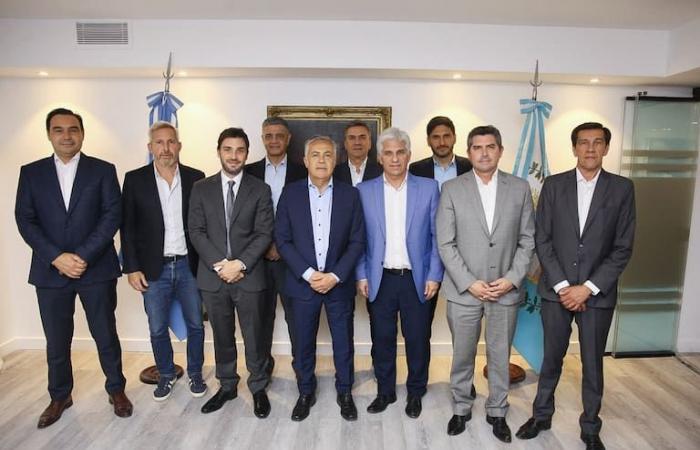Hear
CÓRDOBA.- Although the restitution of the tax on Profits It is important for provincial finances because it is a co-participatory tax, not all governors they endorse it. The Senate rejected it by 41 to 31 and, before the vote, it was already clear that the patagonians they would not support. That position will be maintained in the second round in Deputies. It is a point that marks differences between the dialogueists: Those from the north and center are in favor, those from the south are against.
Within hours of the Senate approving the fiscal package and the Base Law, the Chief of Staff, Guillermo Francosmet with “dialogue” deputies to insist on the original version of Profits and Personal property. While the governors in favor of the restitution of the fourth category have already spoken with their legislators, he was able to know THE NATION from provincial sources.
Added to that pressure was that of International Monetary Fund (IMF) that demanded, among other points, to move forward with the restitution of the Income Tax for the highest salaries. She did so in a statement signed by the agency’s deputy managing director, Gita Gopinathin which he also included a rediscussion of the co-participation federal tax.
Since a simple majority is required in the Deputies, the leaders who support it trust that the law will pass. “Another situation would have been if in the Senate they turned it over with two-thirds,” emphasizes a Córdoban legislator who responds to Martin Llaryora-. It would have been complicated there, but although in Deputies it was one of the most fought, it has to be resolved in favor. If not, it is because votes are being exchanged.”
This legislator’s reference to the fact that last April, that chapter received 132 votes in favor and 113 against, with 4 abstentions and 7 absences, by Álvaro González and Gerardo Milman del Pro; Roberto Mirabella, Leopoldo Moreau and Guillermo Snopek from Unión por la Patria; Mónica Frade from We Make the Federal Coalition and José Luis Garrido, from the Por Santa Cruz force.
The dozen leaders of Together for Change (JxC) called itself for the next June 26th In Buenos Aires city. The meeting is the day before the date on which Deputies would meet. In that group, the Chubutense Ignacio Torres is against the return of Profits; It is the position that he maintains from the beginning of the discussion. He insists that “regional asymmetries are not contemplated.”
The votes against by the senators from Chubut and Santa Cruz, who respond to Claudio Vidal, were key to that section of the fiscal package being rejected in the Senate. He also joined Monica Silvafrom Río Negro, who works in line with the governor Alberto Weretilneck.
“It is a complicated issue, there was never unanimity there and that will not change now,” explains a representative of the Pro. Claudio Poggigovernor of San Luis, was the first to openly raise the need: “I hope that the Chamber of Deputies of the Nation can insist on the complete fiscal package. San Luis needs those shared resources, which demagogically and in the midst of the presidential political campaign, were eliminated last year”.
The governors, this time, will coordinate “well” the actions to follow to avoid the “noise” that was generated around the statement they issued hours before the start of the Senate session. They confirmed before this newspaper that the only difference is due to Profits.
A work by the Ieral of the Mediterranean Foundation estimated that the fiscal package sanctioned by Deputies towould carry extra resources for 0.19% of GDP for the Nation and 0.22% for the provinces until December. Still, there would be an annual drop in income. In the particular case of Profits, the expansion of the scales of the monotribute will add taxpayers, but will reduce the number of self-employed who pay the other charge. The net effect would be 0.05% more of GDP than in 2023 for the monotax, while for Profits it would be 0.43 points less.
After the failure on that point in the Senate, Francos pointed out to the governors: “I have spoken with everyone who wanted to talk and they were all waiting for this law to increase fiscal resources and balance their budgets. So It is not understood that the senators representing the provinces have not accompanied their governors, who were waiting for these funds. “How can it be that the senators who represent the provinces, because they are Kirchnerists, have not accompanied the governors who are waiting for these funds?” he told Miter radio.
Among the Peronist leaders was the Pampean Sergio Ziliotto who defended the rejection of the return of the tribute. He described it as a “lie” that provincial finances benefit because, he warned, “the Personal Property Tax that 150,000 high-net-worth owners pay today is reduced.”






